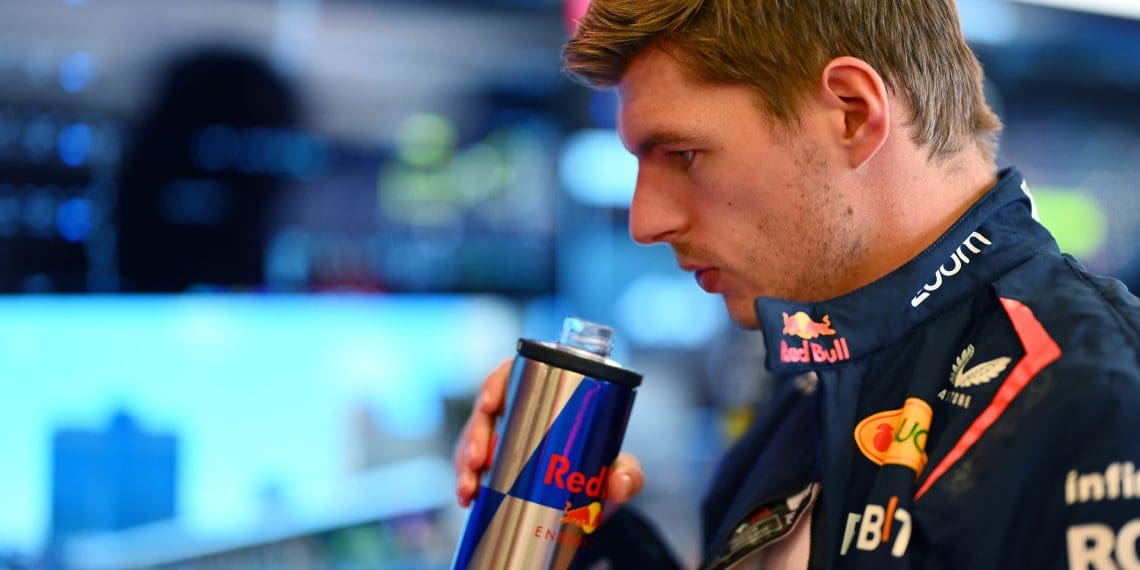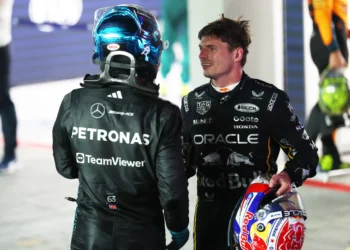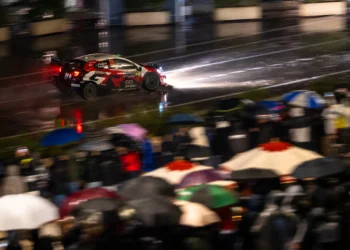Max Verstappen is set to face the Formula 1 stewards at the Singapore Grand Prix after being summoned for his choice of words during Thursday’s driver press conference. The reigning world champion allegedly breached Article 12.2.1.k of the international sporting code, which covers “any misconduct,” following an expletive-laden response about his difficulties during the Baku weekend.
Verstappen’s Outburst: ‘The Car Was Fed’ Sparks Controversy**
Verstappen’s explicit language came while discussing his struggles in Azerbaijan, where he candidly stated, “So as soon as I went into qualifying, I knew the car was f**ed.” The outburst prompted an immediate apology from host Tom Clarkson, but the damage was done. The incident likely triggered Verstappen’s summons, marking yet another flashpoint in F1’s ongoing struggle with language and public conduct.
Irony at Play: Verstappen Criticizes FIA Language Limits While Breaking Them
Ironically, Verstappen’s heated remarks came during a broader rant criticizing FIA President Mohammed Ben Sulayem’s recent push to limit bad language in F1 broadcasts. Verstappen argued that swearing is inevitable, especially in high-adrenaline sports, and that much of the controversy could be avoided by simply not broadcasting such language.
“A lot of things get broadcast nowadays where in other sports you don’t run around with a mic attached to you,” Verstappen said, defending his candidness. “A lot of people say a lot of bad things when they are full of adrenaline in other sports, it just doesn’t get picked up.”
‘What Are We? Five-Year-Olds?’ Verstappen’s No-Holds-Barred Take on Censorship
Verstappen was unrepentant about his choice of words, suggesting that clamping down on language won’t change anything in the real world. “You have to probably limit it or have a bit of a delay that you can censor out a few things,” Verstappen suggested. “That will help a lot more than putting bans on drivers because, for example, I couldn’t even say the F-word. It’s not even that bad, right?”
Verstappen further dismissed the idea that such language is harmful to younger fans, arguing that kids will inevitably encounter swearing in their lives, whether it’s through friends or the broader world. “Even if a five-year-old or six-year-old is watching, they will eventually swear anyway,” he argued. “When they grow up, they will walk around with their friends and they will be swearing.”
FIA’s Firm Stance: Zero Tolerance on Bad Language
The FIA has been consistent in its stance against foul language, especially from high-profile figures in the sport who are seen as role models. Last year, Mercedes’ Toto Wolff and Ferrari’s Fred Vasseur received warnings for similar language during a heated press conference at the Las Vegas GP. The FIA’s lengthy statement emphasized that such language would not be tolerated moving forward, especially in official forums.
“The FIA regards language of this type to be unacceptable, particularly when used by participants in the sport who have a high public profile,” the stewards stated, highlighting the influence these figures have on younger followers of the sport.
Verstappen vs. FIA: A Clash of Cultures and Censorship
Verstappen’s defiance and the FIA’s hardline stance are setting up a clash that reflects a broader debate in sports about language, censorship, and the responsibilities of public figures. As Verstappen prepares to face the stewards, the incident raises questions about where the line should be drawn between honest expression and professional decorum in the high-pressure world of Formula 1.
With Verstappen unapologetically speaking his mind and the FIA keen to maintain standards, this confrontation could set the tone for how F1 handles language issues in the future. Will Verstappen’s star power shield him from punishment, or will the FIA make an example of the outspoken champion? The verdict could have far-reaching implications for the sport’s evolving relationship with its drivers and fans.










